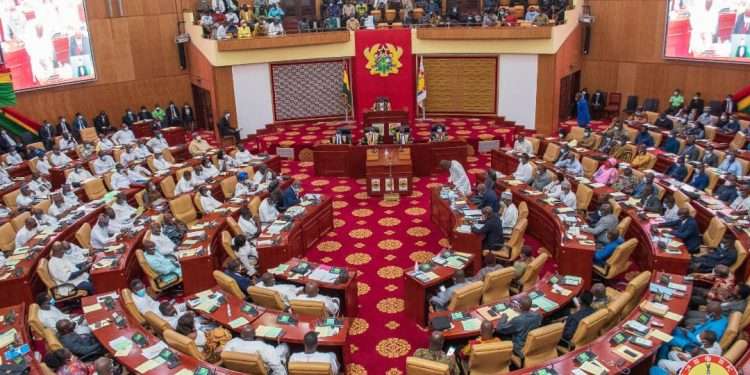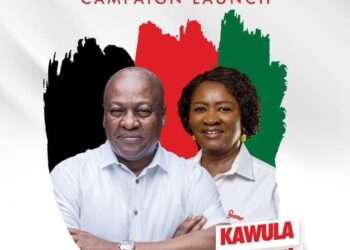The controversial Promotion of Human Sexual Rights and Family Values Bill, also known as the anti-gay bill, has been passed by the Parliament of Ghana. This legislation significantly expands the scope of anti-LGBTQ legislation in Africa, imposing severe penalties on individuals for identifying as LGBTQ+, engaging in same-sex acts, advocating for LGBTQ+ rights, or distributing materials supporting LGBTQ+ rights.
The bill increases the maximum sentence for homosexuality from three to five years, introduces custodial sentences for those advocating for LGBTQ+ rights, and makes the distribution of materials supporting LGBTQ+ rights illegal. The bill was sponsored by traditional leaders from Ghana’s Christian and Muslim communities and now awaits the signature of President Nana Akufo-Addo.
“I am going to put the question and it is not for me to make the decision, it is for the house to take the decision. Those in favour that the Human Sexual Rights and Family Values Bill 2021 be taken through the third reading, say ‘Aye’ …… those against say No. Honorable members, the ‘Ayes’ have it. The Human Sexual Rights and Family Values Bill 2021 is read the third time and passed.”
Rt. Hon. Alban Sumana Kingsford Bagbin, Speaker of Parliament
The bill has sparked widespread criticism and concern among human rights activists and organizations, who argue that it criminalizes a person’s identity and strips away fundamental human rights. They have urged the President to reject it and have warned that it could place a heavy burden on the judiciary, police, and other aspects of life.
The bill outlaws LGBT advocacy, funding, and promotion and makes them illegal. Anyone found in the act could face a sentence of six months to three years in prison, while the act’s sponsors and promoters could face a sentence of three to five years in prison.
The bill’s sponsors filed a move for the bill to be given further consideration before it was passed. Concerning the editorial policies of media companies, Samuel Nartey George, the primary sponsor, suggested that clauses 10 and 11 of the anti-LGBT law be governed by article 12 of the 1992 constitution, which guarantees media freedom.
As part of the bill, the House gave its approval to the modifications. Regarding clause 12 of the bill, which deals with funding for LGBT activities, Majority Leader Alexander Afenyo-Markin also filed a motion to subject it to the constitution. however, the House rejected it.
The Ghana Centre for Democratic Development (CDD-Ghana) Board Chair, Professor Audrey Gadzekpo, urged President Akufo-Addo to veto the bill the day before it was passed by Parliament. According to Prof. Gadzekpo, the bill violates basic human rights guaranteed by the Constitution, such as the freedom of speech and association, academic freedom, participation in processions, equality, and non-discrimination.
At a press conference in Ghana centered on human rights and a rights-based strategy for assisting sexual minorities, Prof. Gadzekpo stated that Ghana’s Constitutional democracy depends on maintaining individual liberties and rights. Noting the importance of the matter for all Ghanaians, she cautioned that changing these rights could put Ghana’s democratic values in danger.
For the Bill to become operative, the president would now need to sign it. The President, Nana Akufo-Addo, has not stated that he will sign the bill into law. The Human Sexual Rights and Family Values proposed law, according to the UN in 2021, would establish “a system of state-sponsored discrimination and violence” against sexual minorities.
Despite opposition from some lawmakers, including Majority Leader Alexander Afenyo-Markin, who reiterated his opposition to jailing people for their sexuality, the bill passed through various stages of consideration. The legislation is expected to have a significant impact on the lives of LGBTQ+ individuals in Ghana, potentially leading to increased marginalization and legal challenges for those affected.
READ ALSO: Your Vote Matters in Election 2024





















